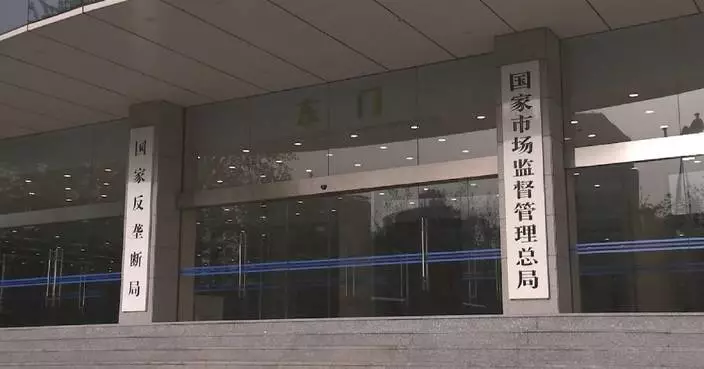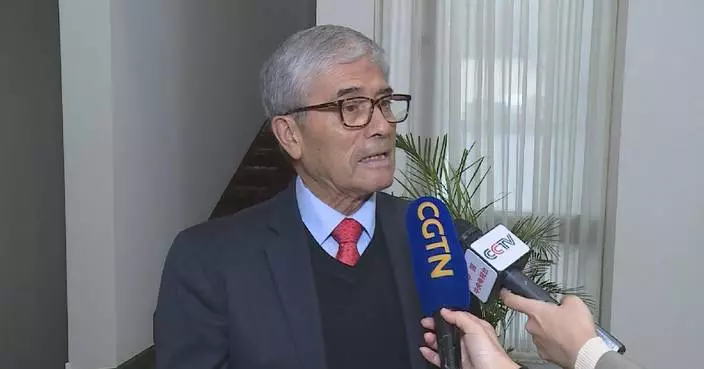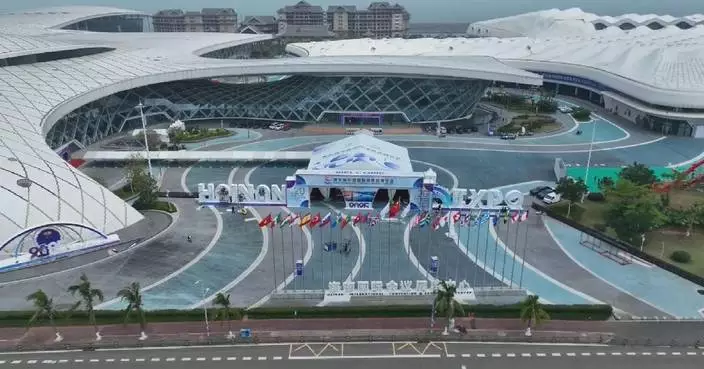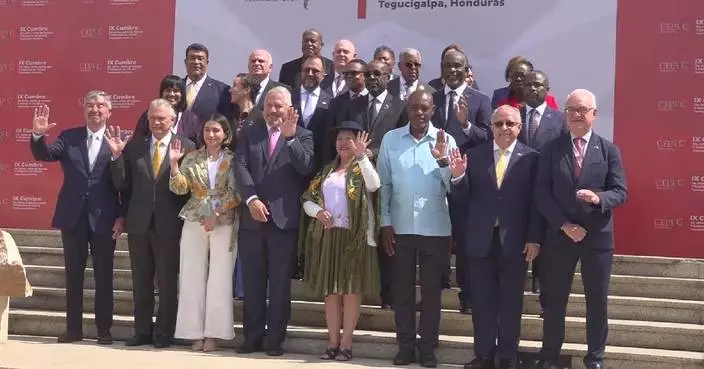China announced on Saturday that it plans to train 1,300 professionals in Traditional Chinese Medicine (TCM) from Belt and Road partner countries over the next three years, as part of its efforts to promote international exchange and preservation of TCM expertise.
The initiative was unveiled by the National Administration of Traditional Chinese Medicine (NATCM) at the ongoing 3rd World Conference on Science and Technology of TCM and 2024 Changchun International Medicine and Health Industry Expo, held in Changchun, northeast China's Jilin Province.
During the event's overseas matchmaking session, more than 50 international buyers from over 20 Belt and Road countries had one-on-one business meetings with TCM suppliers, highlighting the growing interest in TCM across different regions.
"We do know a little bit about China and Chinese medicine. But normally what we know [is] that you have some herbal medicine, as we do have in some Latin American countries. But coming here, it was fantastic to see that in China, herbal medicine is down at such high pharmaceutical level," said Bkhnov Elena, a buyer from Peru.
The overseas buyers expressed interest in a wide range of TCM-related products, from pharmaceuticals and medical devices to health supplements. Many were eager to establish partnerships with China's leading TCM manufacturers.
Since the launch of the Belt and Road Initiative in 2013, international cooperation in the TCM field has seen remarkable progress. TCM has now spread to 196 countries and regions, with over 300,000 practitioners operating more than 80,000 TCM clinics outside China.
"The international scientific research cooperation program for TCM will focus on acupuncture, herbal medicine, and evidence-based studies of traditional medicine. We will collaborate with relevant countries, regions, international organizations, and multilateral mechanisms to promote scientific innovation, exchange, and the application of research outcomes, aiming to enhance the scientific research level of traditional medicine. We plan to train 1,300 professionals in the next three years as its first step," said Yu Yanhong, NATCM director. The conference and industrial expo runs from Saturday to Monday.

China plans to train 1,300 overseas TCM professionals in next 3 years
A conference on sustainable development cooperation among Shanghai Cooperation Organization (SCO) member states concluded with the signing of 18 key projects worth a total of 4.795 billion yuan (about 655.5 million U.S. dollars) on Thursday in north China's Tianjin Municipality.
The projects, covering new energy, new materials, infrastructure, and automotive supply chains, are expected to boost practical cooperation among member states.
Nearly 400 guests, including officials and enterprises from SCO member states, attended the opening session. The conference is part of a series of activities ahead of the upcoming SCO summit in China this autumn.
The agreements involve eight countries, including the UAE, Egypt, and Uzbekistan. Notable projects include a 200-megawatt transformer substation in Egypt's Suez Canal Economic Zone and a collaboration between the UAE and Tianjin Municipality to help local enterprises expand overseas.
Ahmed El Homosani, CEO of the Sczone Utilities, highlighted the importance of the power substation project in attracting quality investments. "What we are going to sign is a framework agreement regarding building a new substation, 200 mega of electricity power. It will attract more and better investments," he said.
Meanwhile, Avinash Jagetiya, CEO of UAE's Sun Management Consulting, emphasized the significance of the cooperation agreement with Tianjin. "Yes, I'm certainly looking forward to this conference and that is the reason I'm here. And in this conference also we are going to sign an MOU (Memorandum of understanding) with Tianjing government. And this project is a step forward in serving the Tianjin enterprises and expanding their footprints and overseas market," he said. The conference also featured specialized sessions on energy, infrastructure, and mining cooperation. Energy cooperation was a focal point, with representatives from Kyrgyzstan noting increased interest from Chinese investors in energy projects.
"At present, a large number of Chinese investors are directly engaged with Kyrgyzstan's State Investment Agency for energy projects, including hydropower, solar and wind power plants," said Maksatbek Botoyarov, chief specialist of the Department of Investment Attraction and Regional Development of Kyrgyzstan.
Participants, including representatives from traditional energy firm LONGi, expressed commitments to increasing investments in the new energy sector and exploring green transformation pathways with SCO members.
"Over the years, we have developed green electricity and green hydrogen products and technical solutions to help these SCO countries achieve their sustainable development and energy transition. We are also actively communicating with the Kazakh government to formulate specific plans and programs for implementation," said Shi Shufeng, marketing director of LONGi's Central and East African Market.
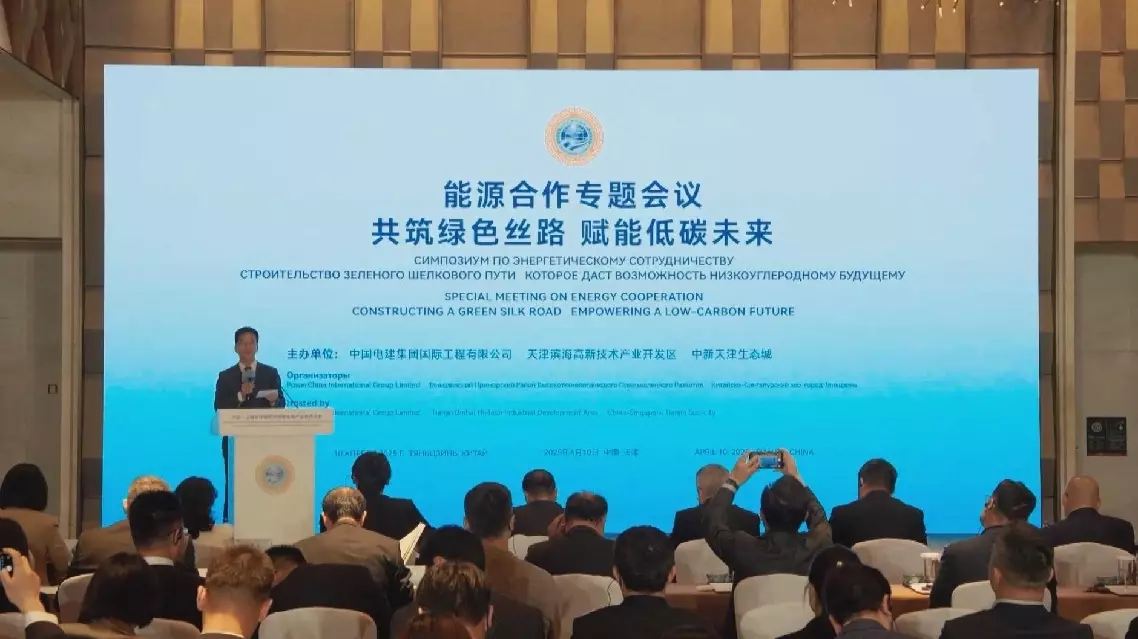
SCO sustainable development conference secures 18 projects involving nearly 4.8 bln yuan





